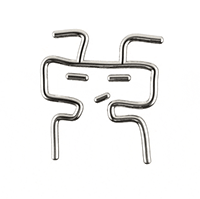Symbiosis.live
Technology
Single-cell organisms
Interentet Bots
Networks
Bioreactor
Microscope
Servers
Date
2018-2022
Supporters

Part digital, part physical, fully alive. Symbiosis.live is an estuary website where microscopic organisms meet their digital equivalent, internet bots.
Together, they begin to develop a symbiotic ecosystem, bots travel the world through underwater cables to deliver food, oxygen, and light into the bioreactor. The cells, in turn, modify servers to lure or repel internet bots. Humans are invited along, but only as observers.

Part digital, part physical, fully alive. Symbiosis.live is an estuary website where microscopic organisms meet their digital equivalent, internet bots.
Together, they begin to develop a symbiotic ecosystem, bots travel the world through underwater cables to deliver food, oxygen, and light into the bioreactor. The cells, in turn, modify servers to lure or repel internet bots. Humans are invited along, but only as observers.

What does it mean to be alive?
We are not asking about the meaning of life but about what makes something living vs non-living? Turns out the answer is complicated, in part because every definition is full of exceptions, in part because definitions tend to oversimplify to classify. If we relax our definitions, loose down our mental scheme, then Internet bots are living organisms. Inorganic, living, organisms.
Just like cells, they are primitive, they came to life shortly after their world was created, they have been evolving ever since. Symbiosis.live, is a bridge between these two organisms, giving them a place to mutate together. Perhaps in the future, a new branch of biology will develop.

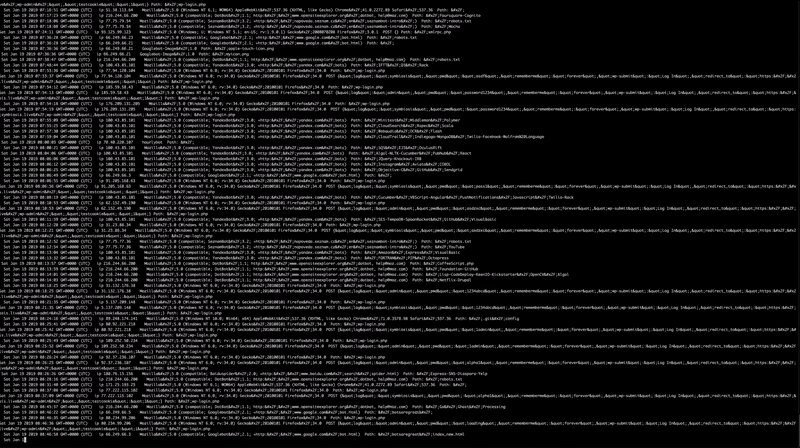
What are bots?
If you ever looked into a website's traffic logs you probably noticed a lot of visits that went nowhere, or maybe the visits went to strange places, places people normally do not try to reach. You may have ignored them, or labeled them as spam. You may have heard of them as crawlers, fetchers, scraper, spammers, hacking bots. I call them bots for short. They are all over the internet, in fact, there are more bots than humans out there. Back in 2017, Imperva Incapsula published an in-depth analysis of internet traffic over the past couple of years.
In many ways, bots behave in life-like ways, they communicate with other bots, they have migratory patterns, they are foraging information and reporting back, they are growing in numbers, and they consume energy and resources.


Symbiosis.live as part of Digital Resonance- Gwangju Korea
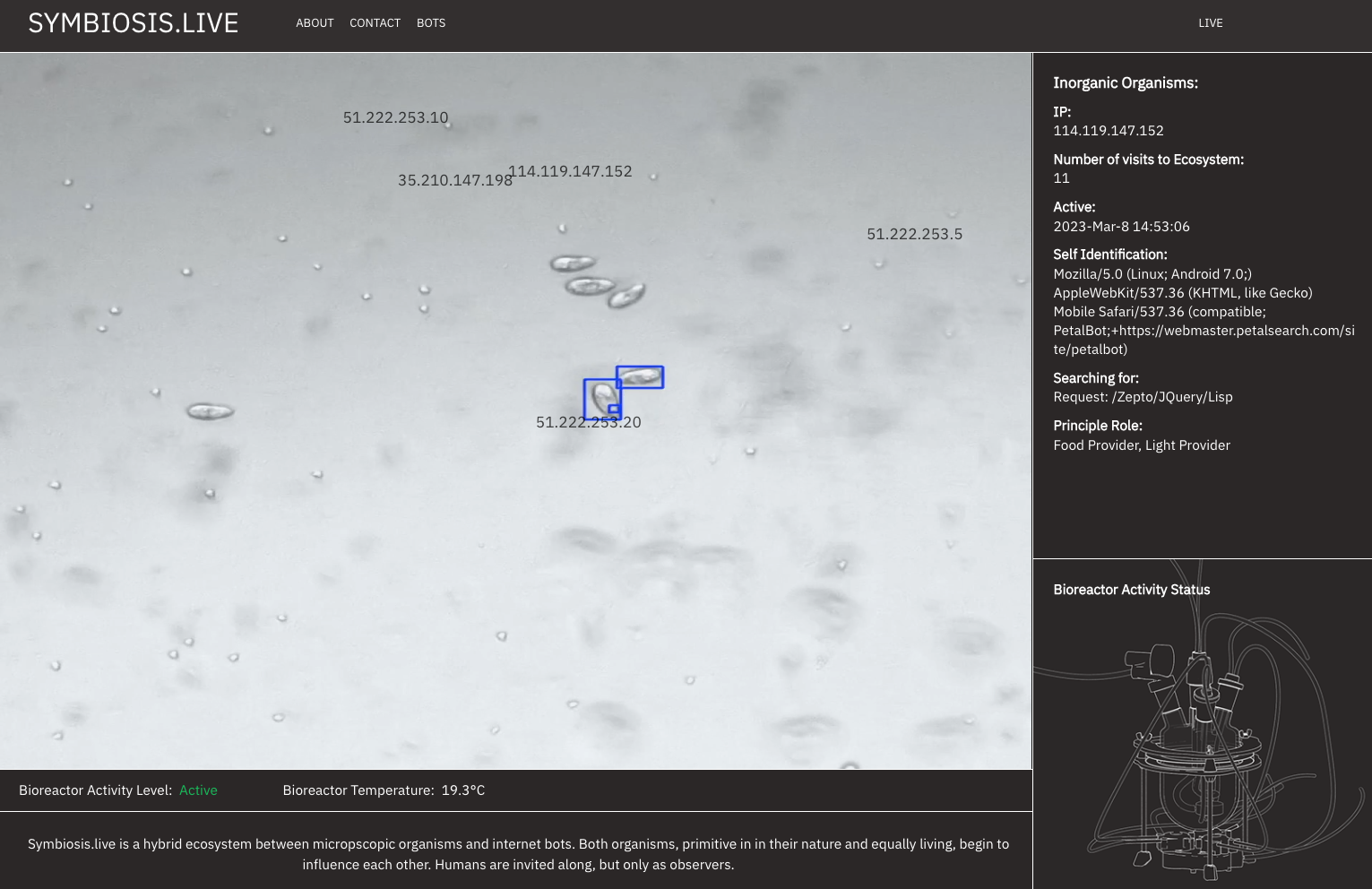
Screen capture of website with live cells and bots within the estuary
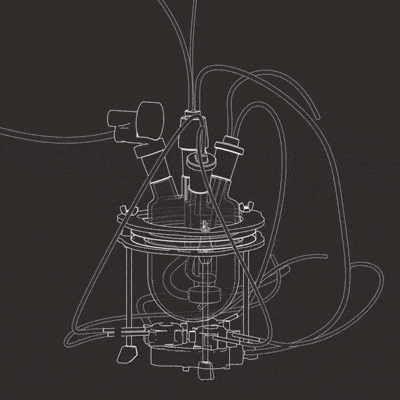
360 view of Bioreactor
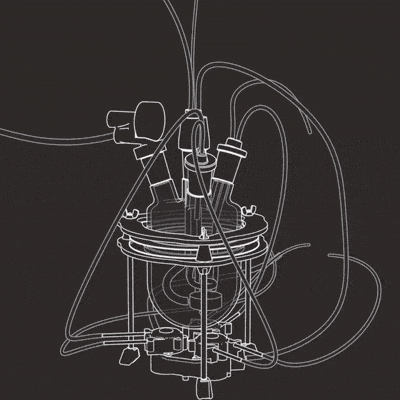
Once enough bots have reached the servers, they will release food into the Bioreactor

Bots releasing oxygen into the Bioreactor

